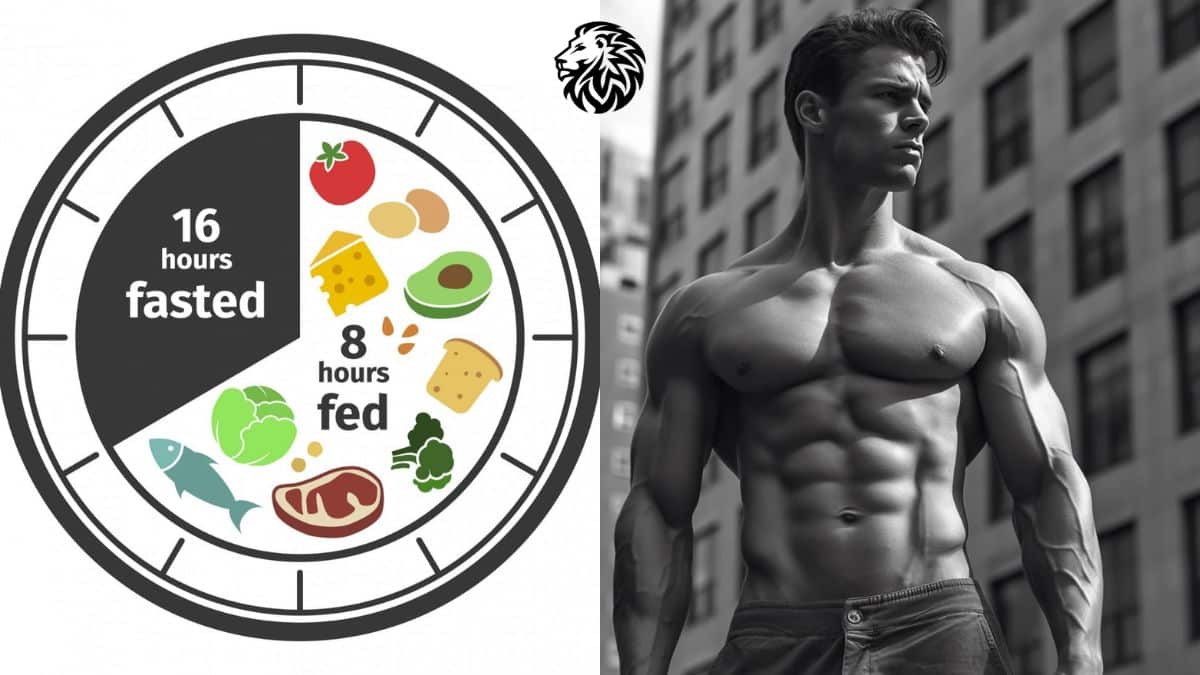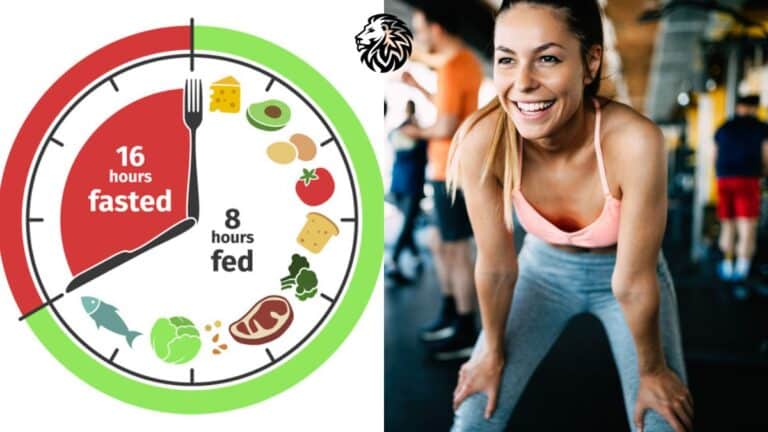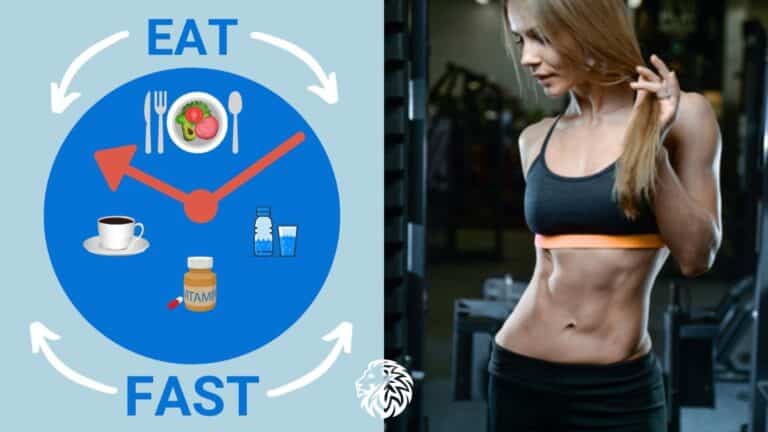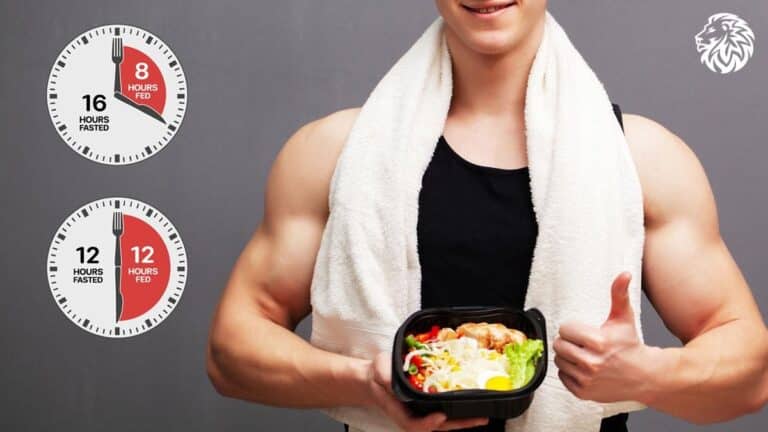The Basics of Intermittent Fasting
Understanding Intermittent Fasting
Intermittent fasting (IF) is all about when you eat and when you don’t, and it’s got folks buzzing in the health circle. It breaks away from the traditional diet rulebook and lets you decide how to fit it into your daily grind. Here’s how people usually do it:
- 16:8 Plan: Keep your eats in an 8-hour slot and fast for the other 16.
- 5:2 Routine: Eat like you usually do five days a week, but cut the calories down to 500-600 for two days.
- Eat-Stop-Eat: Take a full 24-hour break from food once or twice a week.
This fasting groove might offer you perks like shedding pounds, giving your metabolism a tune-up, and possibly keeping big bad conditions like type 2 diabetes and heart disease at bay (Johns Hopkins Medicine). If you’re curious about different schedules, hop over to our page on intermittent fasting schedule.
Benefits of Intermittent Fasting
The perks of intermittent fasting go way beyond just dropping a pants size. Here’s a snapshot of what it might do for ya:
- Shed Pounds and Trim Fat: Say goodbye to counting every calorie! Fasting gets your body to burn fat instead of sugar, making weight loss a natural process.
- Rev up Your Metabolism: It helps to lower insulin resistance, which means better blood sugar control and a stronghold against type 2 diabetes.
- Boost Your Brain: Research suggests fasting could enhance your brain’s performance and up the brain-derived neurotrophic factor (BDNF), which is crucial for learning and memory (Healthline).
- Spike in Human Growth Hormone (HGH): Your HGH levels can surge, which is great news for building muscle and burning fat.
| Benefit | What’s the Deal? |
|---|---|
| Shed Pounds and Trim Fat | By changing the fuel from sugar to fat, your body burns it away. |
| Rev up Your Metabolism | Helps cut down insulin resistance and blood sugar. |
| Boost Your Brain | Raises BDNF levels to help learning and memory. |
| Spike in HGH | Enhances growth hormone levels for muscle and fat control. |
Thinking this fasting thing could be useful? Check out our article on intermittent fasting benefits for more on the upside of skipping meals now and then.
Before leaping into it, arm yourself with the basics and benefits so you know what you’re in for. We’ve got more scoop on fasting in our guides on intermittent fasting for weight loss and intermittent fasting and fat loss. Dive in and see if it’s your next health hack!
Muscle Growth and Intermittent Fasting
Thinking about trying out intermittent fasting to bulk up those muscles? It’s good to know how this popular eating schedule plays with your muscle growth. Sure, fasting has a bunch of health perks, but right now, let’s zero in on how it jazzes up your human growth hormone and keeps those muscles lean and mean.
Impact on Human Growth Hormone
A pretty cool thing about intermittent fasting is how it revs up your human growth hormone (HGH). When you’re giving your belly a break, your hormones get a kick, which can help you pile on the muscle. Intermittent fasting cranks up HGH levels, fueling muscle growth, making you stronger, and holding onto that lean muscle (BarBend).
| Time Fasted | HGH Boost (%) |
|---|---|
| 24 hours | 1300% in women |
| 24 hours | 2000% in men |
Human Growth Hormone Boost: Just one day of fasting can seriously pump up your HGH levels. This hormone is a big-time helper for keeping your muscles and bones in shape, and sticking around with fasting means better muscle gains and strength.
If you’re curious about how fasting shakes up your metabolism too, check out intermittent fasting and metabolism.
Lean Mass Preservation
Fasting not only beefs up your muscles but also helps keep that lean muscle intact. Team up fasting with some weight training, and you’ve got a recipe for hanging onto muscle while shedding fat. One study found folks who did both kept their muscle mass and strength while trimming down.
| Study Length | Change in Lean Mass | Change in Fat Mass |
|---|---|---|
| 8 weeks | +1 kg | -2 kg |
| 12 weeks | No major change | -3 kg |
Lean Mass Check: Some studies spotted just a tiny dip in muscle (like 1 kg or 2 pounds) after a few months of fasting, while others saw no big shifts (Healthline). More digging is needed here, but the word on the street is looking good.
Want some tips on intermittent fasting to ace muscle gain? We’ve got suggestions that’ll help you out.
By getting a grip on how fasting shakes up HGH and helps preserve lean muscle, you’re better set to see if this eating style is your thing for bulking up. For more tips on working out while fasting, take a peek at our take on intermittent fasting and exercise.
Optimizing Muscle Gain
You thinking about trying intermittent fasting but worried about your muscles vanishing? You ain’t gotta sweat it! We’ve got the goods on keeping those gains while you fast. Let’s talk about munchin’ on protein and working up a sweat to keep those muscles nice and meaty.
Chowing Down on Protein
If you want to keep your guns loaded during fasting, make sure you’re getting enough protein. It’s the secret sauce to hanging onto those muscles while your waistline shrinks. Spread your protein munchies throughout your eating time—every muscle needs a bit of love to grow and repair itself.
| Protein Source | Protein Content (per 100g) |
|---|---|
| Chicken Breast | 31g |
| Tofu | 8g |
| Greek Yogurt | 10g |
| Lentils | 9g |
| Eggs | 13g |
Mix it up with different proteins to hit your daily needs. Want to dive deeper into meal preps? Peek at our intermittent fasting meal plan.
Sweatin’ It Out: Exercise Tips
Keeping muscles pumped when you’re fasting? Yep, you can do that too! Here’s the lowdown on working out just right:
- Lift Some Iron: Getting muscled up means moving weights. Resistance training like weightlifting boosts that growth hormone for bigger and stronger muscles. Want proof? Check out Topend Sports.
- Cardio, but Chill: While lifting should be your best buddy, a bit of cardio won’t hurt. Just don’t overdo it. A light jog or cycle can keep those lean muscles intact.
- Fuel Up Right: Timing is everything. Here’s the scoop:
- Before Workout: Load up on carbs and protein to power your moves.
- After Workout: Protein is your BFF. It knits those muscle fibers back together (Simple Life).
- Stick With It: Keep a regular exercise gig going. Consistency keeps those muscles firing and growing.
Wanna get more muscle-fast-savvy? Check our reads on intermittent fasting and exercise and intermittent fasting tips.
With the right balance of protein snacks and smart workouts, your muscles will hang tight while you fast. Remember, tweak this game plan to fit your body’s needs and curves.
Factors Affecting Muscle Gain
When you’re juggling intermittent fasting (IF) and trying to bulk up, a couple of things need your attention: how much you’re eating and when you’re stuffing your face with all the good stuff.
Role of Caloric Intake
Want biceps like Thor while practicing intermittent fasting? Then you better give your body the fuel it needs. Your muscles are needy little devils, craving just enough calories to grow, especially when you’re chucking weights around. In fact, pairing intermittent fasting with your pump iron routine might just get you leaner and meaner (Healthline).
Picture this: if you eat more calories than you burn, your muscles have a party. Well, okay, maybe not a party, but they do start to grow. But hey, don’t just gobble up anything. Stuff yourself with nutrient-rich goodies that’ll not only beef up those muscles but keep you healthy too.
Recommended Daily Caloric Intake for Muscle Gain
| Gender | Activity Level | Calories (per day) |
|---|---|---|
| Guys | High | 2,800 – 3,200 |
| Gals | High | 2,200 – 2,700 |
| Guys | Moderate | 2,600 – 3,000 |
| Gals | Moderate | 2,000 – 2,500 |
Meal Timing and Quality
Timing is everything, my friend. Whether you’re fasting or not, when you eat makes a world of difference in gaining muscle.
Pre- and Post-Workout Nutrition
Being fuelled up for your gym sessions is non-negotiable. Sneak in those meals before and after your workouts to give those muscles a boost. A well-timed post-workout snack can speed up recovery and get you back in the game faster (Simple Life).
Tips for Pre- and Post-Workout Nutrition:
- Pre-Workout: Gobble something small packed with carbs and protein about half an hour before hitting the gym—it’ll give you energy.
- Post-Workout: Within an hour after breaking a sweat, a meal with proteins and carbs gets those muscles back on track and fills up your energy reserves.
Protein and Carbohydrate Intake
Protein’s your muscle’s best friend, while carbs are the energy cheerleaders during those intense lifting sessions. Want more muscle?
- Protein: Aim for 0.6–0.9 grams per pound of body weight each day.
- Carbohydrates: Shoot for 1.8–3.2 grams per pound of body weight each day.
Example Macronutrient Distribution for Muscle Gain
| Nutrient | Amount (per pound of body weight) |
|---|---|
| Protein | 0.6 – 0.9 grams |
| Carbs | 1.8 – 3.2 grams |
Quality of Food
Don’t just stuff your mouth with whatever; be mindful during your eating window. Whole, nutritious foods are the way to go for keeping your muscles and body happy.
Want more tips on how fasting can help muscle gain? Peek at our articles on intermittent fasting for weight loss and intermittent fasting meal plan.
Mess around with your munching schedule and food quality—you might just find that sweet spot where intermittent fasting and muscle gain meet. Give it a whirl, and see what makes those muscles feel like a million bucks!
Intermittent Fasting Protocols
Check out these intermittent fasting plans, perfect for those looking to build muscle and keep tabs on their weight.
Popular Fasting Schedules
Here are a few fasting routines folks swear by, each with its highs and lows:
- 16:8 Method: You fast for 16 hours and munch during an 8-hour window.
- 5:2 Diet: Eat like you usually would for five days, and then eat lean—500 to 600 calories—on the other two.
- Eat-Stop-Eat: Try not eating for 24 hours straight once or twice a week.
- Alternate-Day Fasting: Swap between eating one day and fasting the next.
- Warrior Diet: Go light for 20 hours and enjoy a big meal at the day’s end.
Steering clear of fasting beyond 72 hours might prevent your body from hoarding extra fat.
Want more fasting ideas? Check out our handy guide to intermittent fasting schedules.
16:8 Schedule Effectiveness
The 16:8 method—where you fast for 16 hours and eat your chow in an 8-hour window—gets a lot of love for muscle-building because it’s easier to follow and rock-solid in terms of fitting into different lifestyles (Simple Life).
Benefits of 16:8 Schedule:
- Adaptability: Slip it smoothly into your day-to-day life.
- Muscle Preservation: Helps keep those gains strong.
- Sustainable: Easier to stick with than longer fasting stints.
Example of a 16:8 Schedule:
| Time | Activity |
|---|---|
| 8:00 AM – 12:00 PM | Fasting |
| 12:00 PM | Dive into your first meal |
| 4:00 PM | Time for meal two |
| 8:00 PM | Wrap it up with your last meal |
| 8:00 PM – 8:00 AM | Back to fasting |
Get some tips on pairing exercise with fasting in our article on intermittent fasting and exercise.
To truly make the most of the 16:8 plan for muscle gains, pack your meals with protein and the good stuff by following a smart intermittent fasting meal plan tailored for muscle boom.
Learn extra about intermittent fasting benefits and see how this approach can fit into your fitness and weight goals.
Thinking About Your Health and Seeking Advice
Dealing with Health Issues
Intermittent fasting might help you shed a few pounds and tweak your metabolism for the better, but it’s not for everybody. Some folks have to be extra careful, especially if they’ve got certain health issues.
If you’re dealing with diabetes, battling an eating disorder, or have a bun in the oven, have a chinwag with your doctor before jumping into the intermittent fasting game (Johns Hopkins Medicine). These health situations can make fasting a tricky business.
- Diabetes: Sugar levels need to be kept in check, and fasting can mess with those numbers.
- Eating Disorders: Routine fasting may stir up unhealthy eating habits.
- Pregnancy: Mamas-to-be need all the nutrients they can get, so skipping meals might hurt more than help.
Chatting with your doc can help you set up a fasting plan that keeps you safe and sound on your quest for muscle gains and other benefits.
Smart Steps and When to Get Expert Advice
Getting into intermittent fasting isn’t just something you dive headfirst into without thinking. Best to take some steps and maybe chew the fat with a healthcare pro beforehand.
Here’s what you should keep in mind:
- Talk to a Doctor: Before you start skipping meals, get some professional advice, especially if there are medical issues involved. Your doc can give you pointers that fit your health puzzle.
- Keep Tabs on Yourself: Listen to your body—it’s always talking! You might feel grumpy, super hungry, or find it hard to stick to the fasting times.
- Eat Right: Pack your meals with nutrients during the times you can eat. It’s key to meeting your weight and muscle dreams (Simple Life).
- Stay Hydrated: Drink up! Just because you’re fasting doesn’t mean skimping on water. Lack of it could lead to a whole bunch of problems.
And don’t forget the option of getting a nutritionist on board. They can whip up a meal plan that’s best buddies with your fasting schedule, making sure you’re loaded with protein and the good stuff your muscles crave.
| Step | Why It’s Important |
|---|---|
| Talk to a Doctor | Personalized suggestions for those with health complications |
| Keep Tabs on Yourself | Spot issues like moodiness or crazy hunger pangs |
| Eat Right | Helps tick off muscle building and overall wellness boxes |
| Stay Hydrated | Keeps dehydration and other issues from knocking at your door |
Fancy finding out more about how different fasting styles stack up? Peek at our deep dive into fasting schedules.
For a little extra wisdom and safety smarts, check out more insights into intermittent fasting tips and what might go wrong while fasting.







